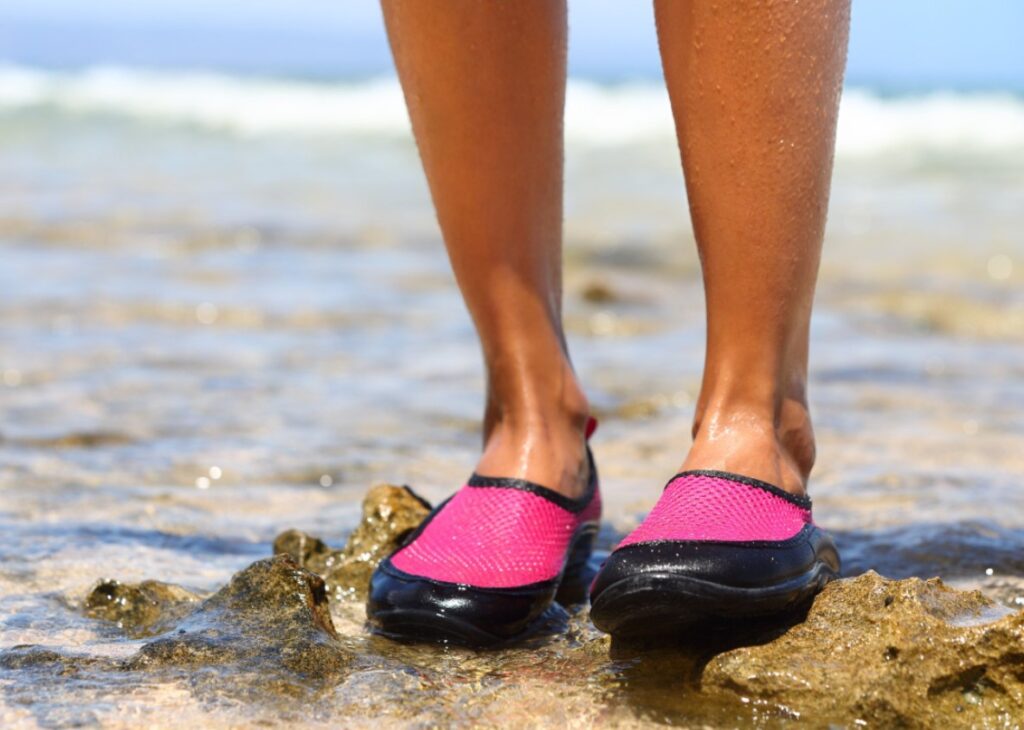The ocean has a significant impact on people’s physical, mental and emotional wellbeing. So, it makes sense that millions of people spend quality time at the beach, bonding and having fun with their loved ones.
When you expose your skin to the sun outdoors, like when at the beach, the sun stimulates the skin to produce vitamin D, enhancing your mental and emotional function. Besides, vitamin D can improve your immunity and mood by increasing serotonin levels.
However, prolonged exposure to sun rays is harmful to your skin and general health. The UV rays are responsible for causing skin aging, cancer, hyperpigmentation, sunburn, and other related effects.
Therefore, you should protect your skin adequately when going to the beach, especially for prolonged hours. The goal is to enjoy your time at the beach without compromising your skin/ health by safeguarding yourself from the disastrous health effects associated with UV rays. Below are some beach wear that protect your skin from the sun.
1. Wide Brimmed Hats

Hats are one of the most prominent pieces of wear on the beach as they can protect your face, which is most vulnerable to UV rays exposure and sunburns. However, remember to focus on the wide-brimmed designs when shopping for your beach hats. The hat should have a wide diameter to keep off as many rays as possible.
Hats with narrower brims such as baseball caps are not optimally practical and may expose parts of your face to the sun, especially the neck, ears, and nose. Besides the width of the brim, you should consider the kind of material and the style when shopping for sun hats.
These hats have one additional convenience and that is protecting your hair from the sun. If by now you haven’t thought about how your hair can suffer from sunbathing, it is time to consider this as well. Hair burns, also. Which is one of the reasons wearing hats is highly recommendable, but also applying protection for the hair, as well.
2. Cover-Ups

Bikinis are popular beachwear today. Initially, there was nothing sexual about bikinis, but instead, women exclusively wore them to celebrate freedom and the simple joys of life by the sea and under the sun.
However, since prolonged exposure to the sun is disastrous to your skin and health, more and more women are considering doing cover-ups on top of their bikinis to protect their skin. So, the next time you think of flaunting your summer body at the beach, carry a bikini to cover up when sunbaking on the sand or beach seats.
Besides the stylish sun protection, cover-ups are a beach necessity for people who may not like walking around the beach in a bikini, especially when at the lobby, hotel or bar. Also, consider cover-ups if you want some decency or are cautious about your body.
3. Sunglasses

Every minute you spend at the beach during sunny days exposes you to harmful UV rays that can be blinding to your eyes and harmful to the surrounding skin. Therefore, you need sunglasses to protect your eyes and face from sand, dust and debris when sitting at the beach, watching the sea, biking, running, water skiing or any other beach sport.
Since high-quality sunglasses block off 100% of the harmful UV rays, you can enjoy your beach time worry-free. In addition to protecting your eyes from irritation and other effects, sunglasses also prevent sunburns on the skin around the eyes, making them necessary when going to the beach.
4. Proper Beach Shoes

When at the beach, most people forget that their legs also need protection from UV rays. Most will cover all the other body parts but walk over the beach sand or participate in watersport shoeless or with sandals.
While you may be tempted to wear sandals for convenience when at the beach, the best way to protect your feet is to quality beach shoes, probably closed ones that cover most parts of your feet. These shoes are also crucial water sport apparel for an incredible water sporting experience at the beach.
The beach is a perfect place to spend time with family and friends. However, you must protect your skin from harmful UV rays as they can cause hyperpigmentation, sunburns, aging and skin cancer. Besides the above tips, you should also invest in quality sunscreen and apply it regularly to protect yourself when at the beach.
What does it mean regularly?

Apply it 20 to 30 minutes before sun exposure to give the skin enough time to absorb it. And repeat it every two hours, or more often if you sweat or swim. The frequency also depends on your skin type. If you have fair skin, you may want to prepare for sun exposure earlier by applying a protective cream in the evening before going to bed, which will be so completely absorbed while you are asleep.
Then, the next day, half an hour before going out in the sun, apply the usual dose of your cream. Do not forget about the lips, which are also exposed to the harmful effects of the sun, and tend to burn quite quickly. Therefore, always carry a lip balm with a protection factor (at least 15) and apply it as often as possible.
Some parts of the body such as the nose are a particular problem when it comes to sunburns. Did you know that lifeguards on the beach often have zinc oxide paste on their noses, but it does not have a protection factor higher than 7? The nose tends to burn quickly, and one needs to have an adequate ointment to avoid this.
Therefore, you should first apply protection factor 15 to the nose, wait for the skin to absorb the cream, and only then apply zinc oxide paste to the same area. If you walk barefoot in the sun, be sure to protect your feet with the cream, as well.
Most people think that finding a shade would do just enough to protect them from sunburns, but this is not entirely true. Do not think that you are protected from the sun if you lie in the shade of an umbrella or some kind of canopy because UV rays come from all sides. All surfaces reflect the, be it repelling sand, snow, or concrete and other surfaces. Although ultraviolet rays cannot bounce off water, they pass through it easily, so you are not at all protected from the sun while swimming, either. So, the only thing you can realistically do is find a suitable set of products to treat your skin with.
Other skin protection tips include seeking shade and avoiding the sun at peak hours. Also, wear outfits made of dry, thicker fabrics in dark colors. CotswoldOutdoor watersports offers a variety of beach wear!
 Imagup General Magazine 2024
Imagup General Magazine 2024



